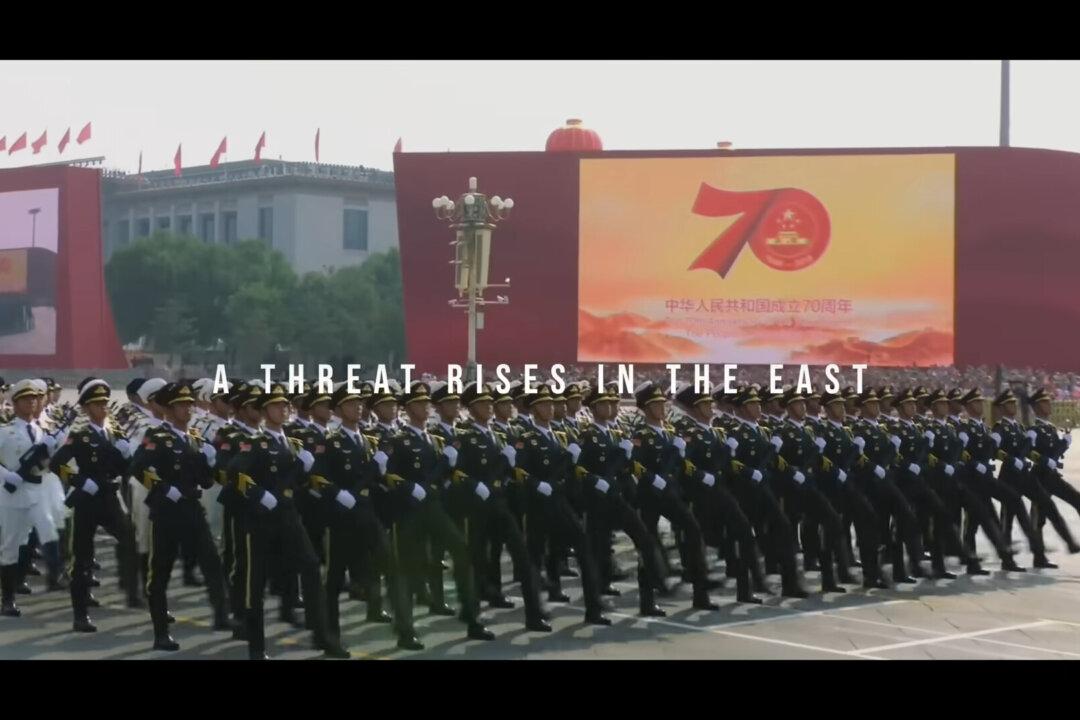News Analysis
The phrase “A threat rises in the East” is superimposed over rolling footage of Chinese and Russian military parades. Eerie, ethereal music plays as cinematic impressions of the Eurasian alliance between China and Russia are interspersed with images of the past century’s most emblematic struggles for democratic values.




